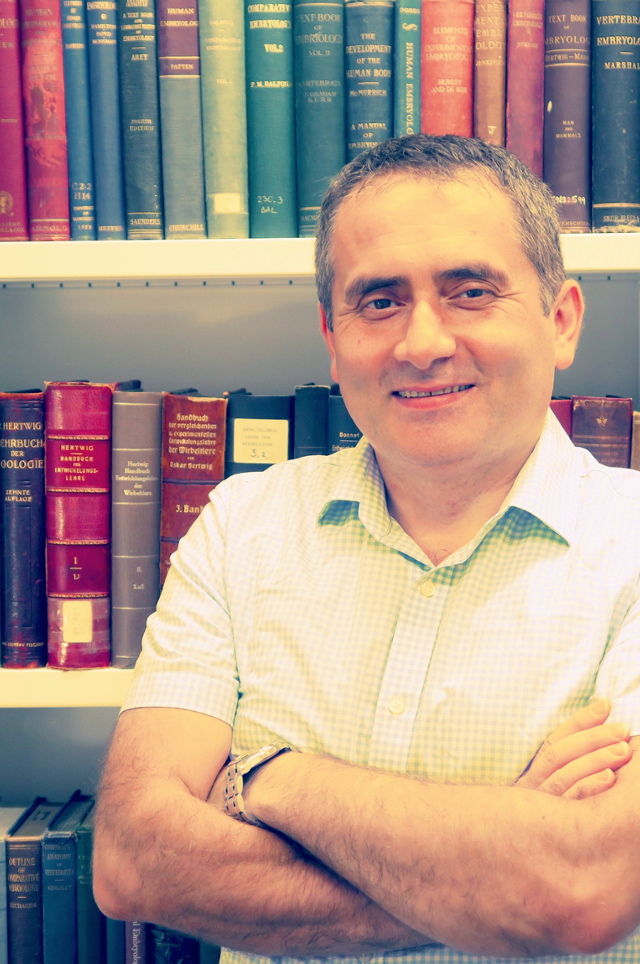

Jun 2023

Abstract:
Recent efforts to deconstruct and reconstruct complex developmental biological processes in vitro from stem cells open up exciting new opportunities for studying and understanding the biological principles, which underlie the emergence of form and function during embryonic development in humans and other species. Early embryonic developmental events including somitogenesis, during which the metameric body plan of vertebrates is laid out, have been extensively studied using model organisms such as mouse, chick or zebrafish, but remain largely elusive and poorly understood when it comes to human and other primates. Using induced pluripotent stem cell (iPSC)-derived presomitic mesoderm (PSM), we previously succeeded to quantify oscillatory activity of the segmentation clock, a molecular oscillator believed to control somite formation. Interestingly, these in vitro models of the segmentation clock did not show any sign of segmentation or somitogenesis despite the presence of oscillatory activity of clock genes such as HES7. Extending on these earlier findings we then asked whether we could recapitulate not only the clock but also the actual process of segmentation and epithelial somite formation in vitro. Utilizing again pluripotent stem cells as starting material we established a 3D in vitro model of human somitogenesis, which exhibited periodic formation of properly patterned epithelial somites in synchrony with the segmentation clock. Our selforganizing “axioloids” shared further morphological and molecular features of the human embryo and emerging vertebrate embryonic axis including presence of opposing morphogen gradients. We also demonstrated a critical role of Retinoic Acid (RA) signalling in the stabilisation of segments, suggesting synergy of RA and ECM in the formation and epithelialisation of somites. Lastly, we applied our bottom-up model system to study the pathogenesis of human congenital diseases of the spine, using patient-like iPSC cells with mutations in HES7 and MESP2, which revealed disease-associated phenotypes including loss of epithelial somite formation and abnormal rostrocaudal patterning. These results suggest that axioloids represent a promising novel platform to study early embryonic development and disease in humans.
Bio:
Dr. Alev obtained his PhD and Doctor of Medicine (Dr.med.) from the Ruhr University Bochum in Germany, where he studied medicine and biochemistry. He did his post-doctoral work on early embryonic development with a focus on mesoderm induction and patterning in the laboratory of Dr. Guojun Sheng at the RIKEN Center for Developmental Biology (CDB) in Kobe, Japan, before moving to the Center for iPS Cell Research and Application (CiRA). At CiRA he worked on pluripotent stem cell (PSC)-based in vitro model systems of human mesoderm development, successfully establishing an in vitro model of the human segmentation clock (Matsuda, Yamanaka et al., Nature 2020; Matsuda et al., Science 2020). In his new lab at the Institute for the Advanced Study of Human Biology (ASHBi) at Kyoto University he is continuing to work on the in vitro reconstitution of human and non-human primate embryonic development from pluripotent stem cells studying developmental processes such as human somitogenesis and axial development (Yamanaka, Hamidi et al, Nature 2022). His lab focuses foremost on the in vitro recapitulation and analysis of human mesoderm development, mesendodermal organogenesis and mesoderm-driven complex morphogenetic processes, with the overall aim to increase our still limited understanding of human development, disease and evolution